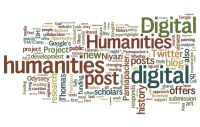Media in transition: international workshop
May 22, 2013
 Media in transition: a workshop for international scholars will be held at our School on 23rd-24th May. The project “Media in transition” is coordinated by the Uppsala University, Sweden, and brings together multinational journalists and academics to debate the current state and direction of media and journalism in Central and Eastern European countries. The intention of the project is to balance academia and practice, the knowledge of practice is balanced with a systematic approach to conceptualizing and presenting information and observations of the project group.
Media in transition: a workshop for international scholars will be held at our School on 23rd-24th May. The project “Media in transition” is coordinated by the Uppsala University, Sweden, and brings together multinational journalists and academics to debate the current state and direction of media and journalism in Central and Eastern European countries. The intention of the project is to balance academia and practice, the knowledge of practice is balanced with a systematic approach to conceptualizing and presenting information and observations of the project group.
Five countries from former Eastern Bloc formed the basis of the project: Belarus, Latvia, Poland, Russia, Ukraine.
The project consists of a mixture of keynote lectures and interactive workshops. The keynote lectures are intended to promote and provoke knowledge and debate on the issues at hand. Workshops provide a forum dedicated to the issues brought up by keynote speakers and participants.
The project is held under the auspices of the Uppsala Centre for Russian and Eurasian Studies and the Department of Media and Communications at Uppsala University. Other participants of the project are the Institute for Eastern Studies in Warsaw, Turiba Business College in Riga, Moscow State University, St Petersburg State University, Ural Federal University, Russian Union of Journalists, Belarusian Association of Journalists and the Latvian Union of Journalists.
The kick-off meeting was held in Wroclaw, Poland (September, 2012) where the focus and issues of the project were established clearly.
The keynote issue was the transition experience of Polish media and journalism.
The primary theme for the event was “Censorship, what is it? How to defeat it?”
The first workshop took place in Riga, Latvia (November, 2012). The workshop gathered representatives from all partner organizations, external academics and journalists. The workshop was dedicated to the Latvian mass media system which was thought to be a split information space – Latvian and Russian. The main challenges within and between these groups were discussed.
The keynote issue was the transition experience of Latvian media and journalism.
The Primary theme for the event was “Journalism as a fourth estate. What is the role of journalism in the 21st century?”
The second workshop was held in Sumy, Ukraine (February, 2013). The main issues of the workshop were obstacles facing Ukraine journalism on the road to building a free, but transparent and accountable media system from their independence in 1991.
The keynote issue of the workshop was the transition experience of Ukrainian media and journalism.
The primary theme for the event was “Personal safety and professional risk. How do you cope with investigating and writing on potentially sensitive topics?”
The third workshop will be held in St Petersburg, Russia (23-24 May, 2013). The workshop is dedicated to the discussion of a tremendous amount of change and circumstances which Russian journalists have had to face since 1991.
The keynote issue is the transition of Russian media and journalism.
The primary theme for the event is “Does economic independence of a mass media outlet mean that it is also editorially independent? Is it possible to reach editorial independence?”
This shall be a concluding workshop which summarizes the results of the project to date, plus discussions on how to ensure a sustainable network as well as how to expand the number of countries represented in the network.
Program
23 May
10.00-10.15 Welcome speeches: Prof. Anatoly Puyu (Director of the School of Journalism and Mass Communications), Prof. Sergey Korkonosenko, Prof. Svetlana Vinogradova, Dr. Dmitry Ruschin– room 302.
10.15-10.45 Introduction to the topic of the workshop (Greg Simons), expectations of the participants – room 302.
10.45 – 11.30 Prof. Marina Berezhnaya “Transition of Russian media and journalism: aims and results” – room 302.
11.30-12.00 Coffee break and networking – room 604.
12.00-13.30 Round table “Journalism of Central and Eastern Europe: In search of the national model”
Moderator: Prof. Svetlana Vinogradova – room 302.
We ask the participants to prepare an input presentation on their country (one presentation of 10 Min on each country – Latvia, Poland, Russia, Ukraine)
13.30-14.30 Lunch
14.30-15.30 “Editorial independence: normative theories vs. reality”, Prof. Elena Vartanova– room 302.
15.30-16.00 Coffee break and networking – room 604.
16.00-17.00 “Editorial independence in St Petersburg: offline and online media” – room 302.
Dmitry Ratnikov, newspaper “St.Petersburgskie Vedomosti” and online-newspaper “Karpovka” (tbc)
18.00 Group Dinner
24 May
10.00-11.30 „Media freedom in Russia: concept, conditions, perspectives”, Dr. Anna Litvinenko – room 302.
11.30-14.00 Visit to the TV-station in St. Petersburg. Talk to an editor: “Editorial politics on TV in Russia: between tradition and transformation”
14.00-15.30 Lunch
15.30-16.00 Ideas on how to continue the Media in Transition project – collective discussion on possible funding and strategies – room 302.
16.00-16.30 Coffee break and networking – room 604.
16.30-17.00 Administrative issues associated with the project (Greg). – room 302.
17.00-17.30 Final summary and closure of the formal part of the workshop (Dmitry, Sergey & Greg) – room 302.
17.30-18.00 Main results of the project and final matters to attend to (All) – room 302.
18.30 Group Dinner
No comments yet. Be the first!


